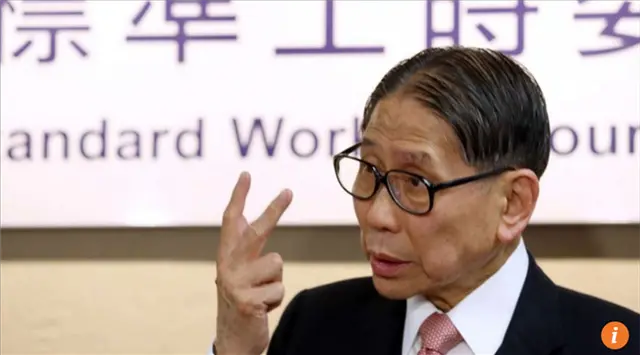Legislating standard working hours for everyone in Hong Kong will not explicitly appear in a list of policy directions tabled for further consultation, according to a preliminary conclusion by a government-appointed body that appeared to have succumbed to pressure from employers.
Dr Leong Che-hung, chairman of theStandard Working Hours Committee, presented results Monday of its first stage of consultation and set forth four principles: the use of laws to implement a policy to regulate working hours; a belief “across-the-board” laws would be inappropriate because of different job natures; the use of laws to mandate written employment contracts stating working hours; and the exploration of measures to protect employees with low income, low skills and poor bargaining power.
Leong reiterated the committee was not making policy and had no official position on working hours.
Although he said regulating standard working hours had not been ruled out by the committee, a blanket approach to working hours had been deemed inappropriate.
Leong said both employees and employers agreed that the multiplicity of trades made it “difficult, almost impossible, to draw a line for every single trade and profession”.
He added the committee would continue to collect views from all parties.
In response, the vice-chairman of theFederation of Hong Kong and Kowloon Labour Unions, Lam Chun-sing, said the body failed to heed labour groups’ call to delve into standardising working hours.
“After over two years of study, the findings remain very vague,” said Lam, who felt the body had “slightly leaned in favour” of employers by not immediately raising concrete policy suggestions.
“The report only focused on calling for employment contract regulation,” he said. “But how about working hours? Labour groups had been asking for regulations specifically on the length of working hours.”
Lam said the federation, representing 50,000 local workers of the transport and service sectors, was planning to boycott the second stage of consultation and would instead raise its concerns by organising a march this Sunday, Labour Day, as it sought support from the chief executive.
Legislating standard working hours in Hong Kong was in the past a source of friction between labour unions and employers.
The committee was set up in 2013 by the chief executive to study working hours situations in the city and explore regulatory options.
It noted the currentEmployment Ordinancedid not compel employers and employees to sign written employment contracts, nor to specify employees’ working hours and arrangements for overtime compensation.
The committee’s recent findings were subject to further consultation due to end on July 24, Leong said. After that consultation, results still needed to be studied.
“We are not stalling,” said Leong of the protracted timeline. “We are going to produce a good report.”
A survey conducted during the first stage of consultation found the average weekly total of working hours for all employees in Hong Kong, or 3.14 million people, was 43.5 hours. One quarter had performed overtime work and over 18 per cent had done work without being compensated.
A separate survey found close to 50 per cent of labour union members preferred to legislate standard working hours, but only 11 per cent of trade associations members preferred it.
(SCMP)
 简体中文
简体中文

